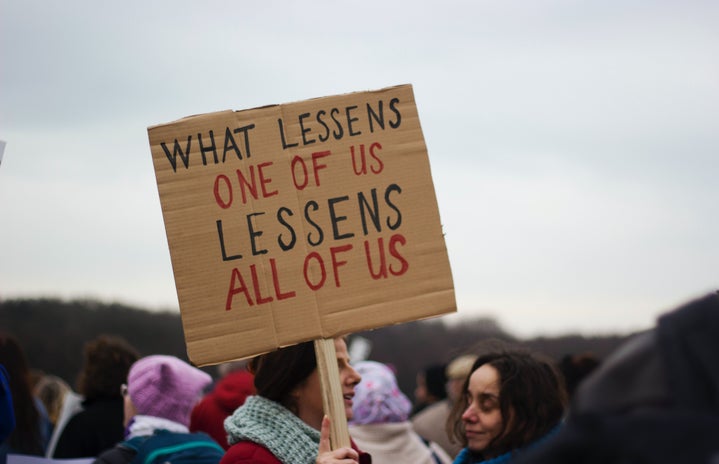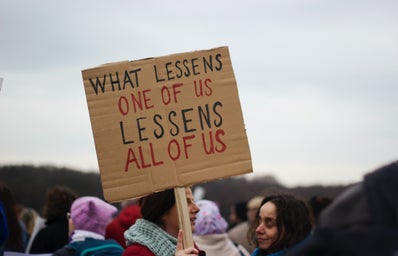It’s hard to know when to leave the party early. In high school and college, parties often filled with red and blue lights can sometimes end in chaos, and they surely are not fit for everyone. When someone goes too far, or the surroundings start to feel a little unsafe, it is at one’s best interest to simply disassociate and call it a night. American politics knows this situation all too well; ducking out unnoticed before someone ends up hurt, fights breaking out, or ulterior motives blocking the way forward.

In America’s current political climate, it is not hard to see that a lot of politicians tend to resort to childish tactics. With name and campaign smears, illusive advertisements, and social divide, the status of politicians feels a lot like high school. A lot of the time, political parties are just as chaotic as college parties, where red solo cups turn into red flags.
America is seemingly divided by red and blue because of twisted issues and claims. For whatever reason, topics like climate change, mask-wearing, and vaccinations are categorized in our minds as “leftist” beliefs. On the other side, people often think of right-winged beliefs to be about certain freedom, patriotism, and economic priority. In reality, most of these issues have to do with their own space of study; whether it relies on having background knowledge of science, economics, and history. The growing division has influenced more and more Americans to stray away from picking sides.
A fun fact to note about American history is that George Washington suggested that creating political parties was “not to be encouraged.” Obviously, the rest of the founding fathers went a different route, and thus was born the two-party system. There are other parties in existence, however. Some people are a part of the Green Party, which focuses on environmental issues. Others opt out and remain registered as independent, yet this official notice limits the independent citizen from voting in certain local and state elections, depending on the area.
As SZA would say in her song “Drew Barrymore,” why is it so hard to accept that the party is over? Or, parties, in this case… Recent studies have shown that an increasing number of voters have decided to leave their previously pledged political party. Famous comedian and Democrat Sarah Silverman recently trashed political parties in general, noting the absurdities of both sides that she clearly does not favor. Media has also been holding democratic President Joe Biden accountable for Syrian airstrikes, which a lot of constituents are unhappy with. As important as it is for constituents to continually critique and vocalize their efforts to their representatives, this also raises the point that maybe a two-party system is too limiting to openly discuss complex issues.
So many issues that remain in American politics have to do with humanity-driven values and individual morals. A lot of people register as one party solely because of religious beliefs. Others don’t personally agree with certain social justice issues in their party, but they pick their poisons. When one party is only open to certain terms and agreements, there is a decline in the number of people who will truly feel driven to participate.

When the party’s over, the outcomes may be truly beneficial. In her song, “when the party’s over,” Billie Eillish writes “But nothing ever stops you leaving.” Inevitably, nothing is stopping us from choosing not to organize and focus more on herd unity. Voter registration has become increasingly popular, as it is vital to making each and every one American’s voice heard and counted. When I go to a party, or even watch them from afar, I notice the collective celebration between everyone that shows up. People from all around are allowed to share space, and sometimes even share cups (pre-covid, of course.) There are no rules and regulations; no requirements involved, no prerequisites, and no paperwork to fill out in order to enjoy a good time. But when division and chaos crawls out of the corners, that is when the party starts to feel like we must put up a fight.
It is difficult to imagine the state of America existing in a torn-up place where one must pledge allegiance to only half of the country, and becomes obligated to take on battles and restraints. Whether the party signifies stereotypes or specific malalignments, each voter deserves to have their own space in their home. Eventually, in our own way, we must find when the right time is to tune out the noise, listen to our instincts, and leave the party behind.



